Our Two Cents: The Goldilocks Horsepower Number
As you may recall, Goldilocks is the story of a woman eating from three bowls of porridge. Said bowls were at various temperatures, but only one was right for her. The same can be true for horsepower figures, as the Lucid Air Sapphire has a scalding 1234 hp. The Mitsubishi Mirage only has 78 hp, which is certainly too cold in our modern automotive climate. So what’s the Goldilocks horsepower number?


That’s the question we posed to the staff here at Hagerty Media, and our answers are just as diverse as our tastes in cars. So have a look at our thoughts, because what’s “just right” for one staffer might not work for others.
400 horses
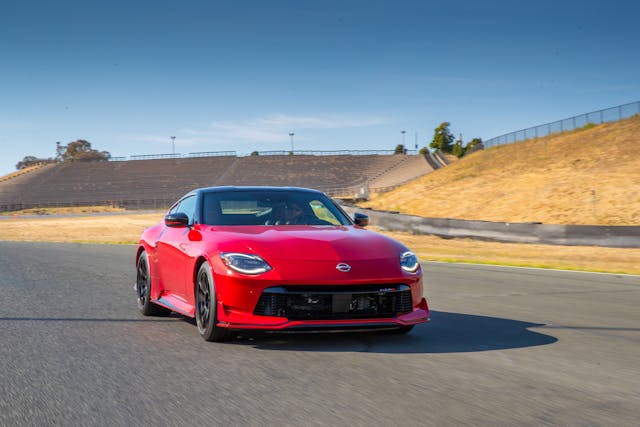
400: This is pretty easy to get out of most modern engine designs while still having a durable, dependable, and serviceable powerplant. It’s also usually enough to spin the tires when you want to while still returning decent fuel economy. — Kyle Smith
650 horses?
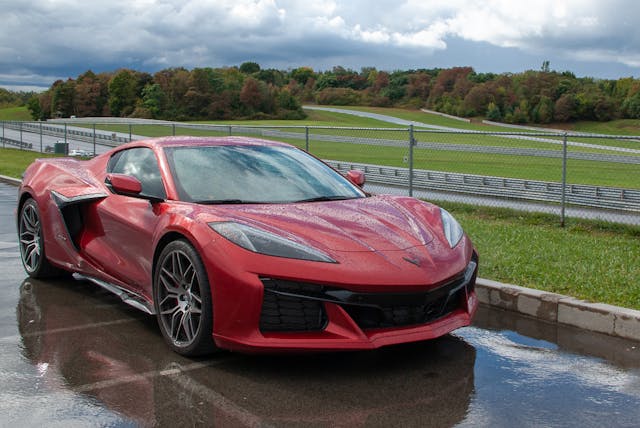
550–650 hp in most applications (modern performance, big SUV, etc.) is about right for day-to-day. Goldilocks, however, is 700–900 hp via a nicely built RY45. — Matt Tuccillo
A “Weighty” Question

You can’t say for sure without knowing the weight. The sweet spot for me is 300 hp, but only saddled to 2600 pounds. Also, peak power doesn’t mean much to me either because if all the power is over 5000 rpm and the engine is asleep at 4000 (where I mostly drive) then I don’t care what those figures are. Okay, more than you wanted to know. — Larry Webster
This is Irrelevant!
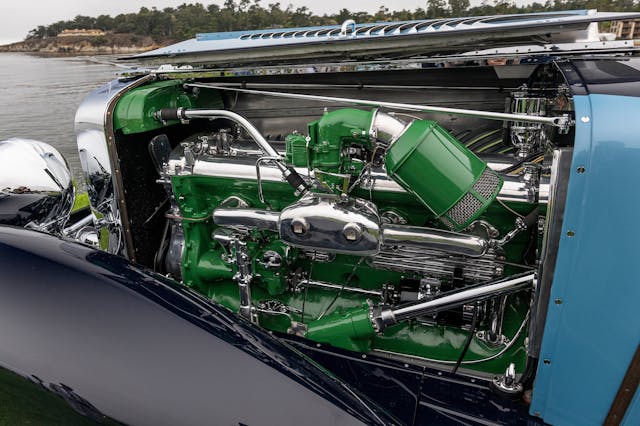
Horsepower is meaningless in the age of electrification. The only numbers that matter anymore are range, consumption, and torque. In older cars, horsepower figures are either deliberately inflated (pre-SAE) and/or irrelevant. Does anyone care what the horsepower figure is for a Porsche 912? A Ferrari 250 GTO? A 260 Mustang vs a 289? It’s rare that anyone ever asks me the horsepower of my old cars and for most of them (’36 Riley, ’49 Buick, ’67 Porsche 912, ’73 Land Rover) I couldn’t even tell you, but it doesn’t diminish my interest in them. Goldilocks horsepower? As the man said, I know it when I see it. — Aaron Robinson
Less than 400
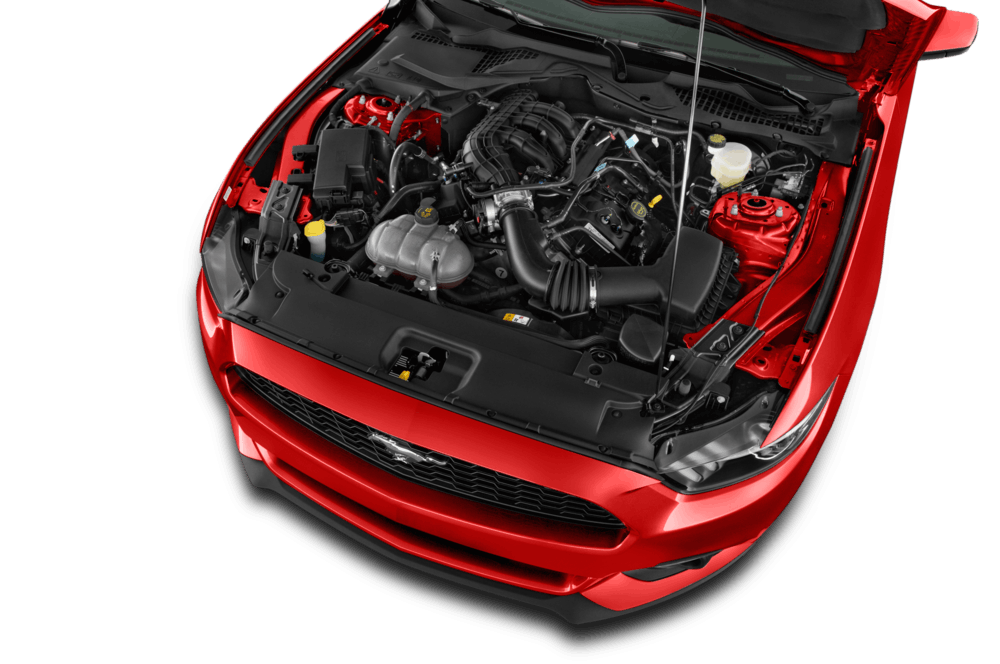

I’ll go out on a limb and say that anything much more than 400 horsepower is really just a unit of … well, member measurement for the average skilled driver in an AWD or RWD platform. Make it FWD and I’d go as low as 250–300 horsepower. Straight-line speed is fun, but moderate power where you can plant your foot and not get in too much trouble (either from lack of skill or that by way of that cop you didn’t notice) is my preferred state. — Greg Ingold
36 Horsepower

The answer is 36 hp—in my 370 lb go-kart, anyway. Any less and it wouldn’t scare me, and any more would probably make it illegal in my class. — Eddy Eckart
2400 horsepower!
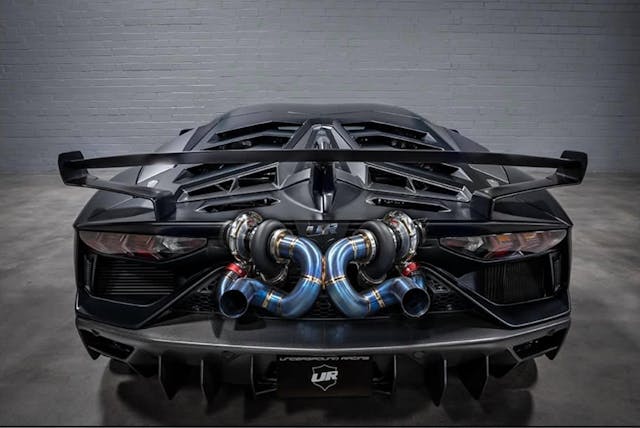
Sorry y’all, but I gotta get all Texas up in here. Texas mile and TX2K to be precise, and we will take the biggest figure the aftermarket provides. I’ve driven a couple of 1000+hp, pump gas Lambos and they provide tame performance in traffic, while also offering mind-altering thrust in places like Mexico.
But it’s been a minute, and the number of turbocharged Lambos with 1500+ horsepower to the wheels suggests that might be about right for my needs. But 2400 horsies at all four wheels sounds delightful, as my foot knows how to treat a throttle pedal like a rheostat and not an on/off switch. Texas Tea also comes in race formulations, dont’cha know? — Sajeev Mehta
***
Check out the Hagerty Media homepage so you don’t miss a single story, or better yet, bookmark it. To get our best stories delivered right to your inbox, subscribe to our newsletters.
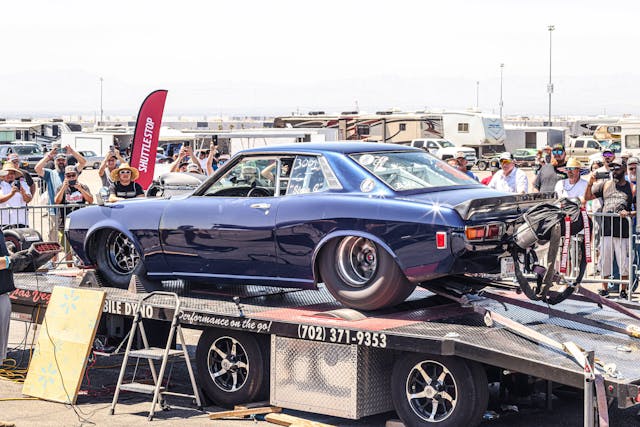


Horsepower is only part of the equation. I would refer to Carrol Shelby’s comments that “There’s never enough horsepower… just not enough traction” or “Horsepower sells cars, torque wins races”
I had a ‘94 Supra TT, 6peed, sport roof.
It came with 320 hp from the showroom.
I “ tinkered” up to 400 hp as a TT.
It was very fast and nice to drive at that power level.
Being never satisfied, the engine came out for a very expensive batch of upgrades : single 67X67 silicon nitride bb turbo, Brian Crower 3.4 ltr., stroker crank, head work, titanium H rods, etc, etc. when it dynoed at 768 hp at the wheels, 726 lbft at 23 lbs of boost, and capable of dial up to 33 lbs… it was insane …. Way too much power for an average driver and 2 wheel drive car.
RIP my beautiful Supra.
Anything over 450/500hp for the street is only going to get the driver in trouble.
An old saying we have about motorcycles (and cars): It’s more fun to go fast on a slow bike than slow on a fast bike. Too much horsepower is hard to control when accelerating out of a corner. When you are in the twisty’s, the high horsepower motors/cars have little, if any, advantage.
A better way to figure the optimum horsepower for a car is to base it on a power-to-weight ratio and how fast you want to accelerate.
If you have an everyday driver but want reasonably good performance, aim for 10-to-1.
If you want 0 to 60 mph in the 4 to 5 second range, 8-to-1 should be enough.
If you want 0 to 60 mph in the 3 to 4 second range, you’ll likely need a power to weight ratio around 6-to-1.
Anything beyond 5-to-1 is either a serious race car or just a burnout showboat that spins its tires excessively.
As someone who has had fast cars, ’66 442, and slow cars, 6 cyl ford van, they all have their place. Now, I look at torque figures for my tow vehicle. About 250hp, I think, but 455lbft of torque, and 20mpg around town. For “fast”, my 1979 Yamaha XS1100 is still all I need. 95 crank HP and about 12 seconds in the 1/4 mile stock…
Seems to me there is no fixed HP number, paticularly in daily driver vehicles. It’s all about matching personal preference, vehicle weight, purpose, design, and technology. Todays engines deliver power, especially torque, so differently from carbeurated 60’s muscle cars, with fuel injection, turbos, and cam timing all under the control of the computer. I find that 400 HP in a street driven SUV to be excessive. When I first looked at it, I was astonished to find my Subaru Ascent was not available with a V6 option, but a mere 2.4L 4 cylinder boxer. But After driving it for 2 years, I’m still amazed that is has all the acceleration I need for safe daily driving in an SUV. It really shines in the mountains, where it shows little to no power loss at as hight as 12,000 feet due to turbocharging. I easily pass naturally aspirated cars on hills. It might even out run my 400 HP big block El Camino in a drag. The 396 chevy engine builds HP and torque as the RPM approach 5500. It makes wonderful sound and the car has a very different sensation of speed. The Subaru is 260 HP and around 275 ft/lbs torque. However the low end and mid range power makes the car feel faster in some ways than the El Camino. The Subaru gets better than average gas milage for a vehicle of its type and weight.
The main function of excess horsepower is bragging about how much horsepower you have. And it’s costly. It weighs more, costs more, burns more fuel, is less durable than a mild tune, tons of liability if you use it and it’s hard to look smart when you are driving like a punk.
Seems to me any amount of HP can get you into trouble. The relevant number to have fun with HP safely is IQ
I think my answer aligns more with Sajeev’s. My answer is, “How much do I have?” I remember when a 200HP Mustang GT seemed amazing. Then the V6 Mustang had 300. A 400 HP car seemed insane. Then 500…and on it goes. Now I have access to over 600 HP, a sub 2.9 0-60, the 1/4 in 10.5, and all the handling to match (plus a top speed I’ll likely never reach). Is it too much? Well, before I had it, I probably would have said it was. Now that I have it, I’m not sure I could be truly happy with “only” 400. 😁
Larry said it best, though: it’s about power-to-weight. Any time you can get down to about 7.5 lb/hp or less, you’re bound to have a good time and probably won’t be wanting for more.
Aaron Robinson mentioned that ratings were often overinflated by the car makers. There was also a period in which they were deliberately underinflated to keep the insurance rates down (mainly on muscle cars).
I really like my BMW 335i with 300 HP, but would like it more with 400! Any more than that would not be useful to me.
I have a Stage 3 Phase 2 Roush Mustang convertible (727hp) and a modified CTS-V coupe (630hp).
I do agree that as much as I love that Mustang, getting the power down is a challenge and I often joke that sometimes I feel that it wants to kill me.
The power in the CTS-V is a bit more manageable which could be due to a combination of meatier tires, a bit more weight and obviously 100 less hp. I also think that the safety nannies in the Caddy do a good job of keeping the car in check versus those in the Mustang.
Having said that, I have had a ton of fun in cars with much less horsepower, so as others have said, it just depends.
Was just having this conversation last week. For an entertaining street car, for me it is 8-9 pounds per horsepower. More HP and it is hard to get to the ground and a brief burst of acceleration puts you into lose your license territory really quickly. Also, this can be achieved with a street-able engine that runs on pump gas. So for most cars this is 400 to 500 hp. More than this level of HP also usually means getting into more expensive brakes, tires, insurance, etc. with less fun return on investment.
A big part of the horsepower answer is where the engine makes its power (power curve). For example.. I think a 300 hp engine with a broad power curve can be a lot more fun than a peaky 400 hp.